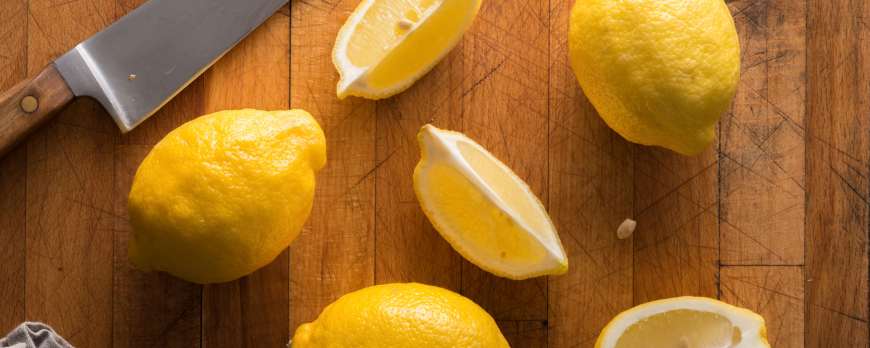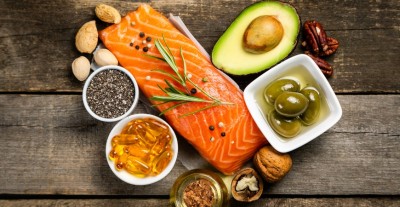Why Drinking Lemon Water on an Empty Stomach Can Truly Alkalize Your Body
For many people, gout and high uric acid levels seem like isolated issues painful, random, and inevitable. Yet more and more evidence points to a clear connection between diet, metabolic health, and this underestimated condition. What if your morning habits, your hydration, and even your gut microbiota could change everything?
In this article, we explore the real causes of uric acid imbalance, how it affects not just your joints but your entire body, and what concrete steps you can take to support your body naturally without waiting for a crisis.
Why you should care about your uric acid level even if you don't have gout
Uric acid is a substance produced during the breakdown of purines, compounds found naturally in the body and in certain foods. Normally, uric acid dissolves in the blood, passes through the kidneys, and is eliminated through the urine. But when there is too much or the kidneys can’t get rid of it fast enough uric acid can accumulate and form crystals, especially in the joints.
This leads to gout attacks painful inflammations that usually affect the big toe, but can also reach the knees, ankles, fingers or elbows. Yet even without obvious symptoms, excess uric acid may silently affect your metabolism, kidneys, blood pressure and even your cardiovascular health. That’s why monitoring and supporting your uric acid levels is not just about avoiding pain: it’s about long-term vitality.
What causes high uric acid? More than just red meat and wine
While red meat, seafood, and alcohol (especially beer and wine) are known to contribute to high uric acid, they are only part of the story. In reality, the most common drivers of hyperuricemia today are:
- Fructose, particularly from sweetened beverages and processed foods. This sugar overwhelms the liver and increases uric acid production.
- Insulin resistance, common in people with metabolic syndrome, which reduces the kidney’s ability to excrete uric acid.
- Dehydration, which concentrates uric acid in the blood and makes elimination more difficult.
- Poor sleep and chronic stress, which affect hormonal balance and overall inflammation indirectly influencing uric acid metabolism.
Understanding these mechanisms is essential. If we only focus on avoiding purines in food, we miss the bigger picture. The body is a complex system, and uric acid is both a signal and a consequence of deeper imbalances. Correcting these can have a ripple effect on your overall well-being.
The Most Common Dietary Mistakes That Raise Uric Acid
When it comes to uric acid, protein is often unfairly blamed. While certain animal-based proteins can contribute to elevated levels, the issue is rarely protein alone it’s more about excess, imbalance, and poor lifestyle combinations. Overconsumption, especially without proper hydration or micronutrient support, can create an overload on the body's natural elimination systems.
One major mistake is consuming a high-protein diet while not drinking enough water. Water plays a critical role in flushing out uric acid through the kidneys. Inadequate hydration leads to uric acid retention and concentration in the blood.
Another common pitfall is a diet high in refined sugars and processed foods. These promote chronic low-grade inflammation, disrupt gut health, and impair the liver's detoxification capacity all factors that worsen uric acid metabolism. Alcohol, particularly beer, is another trigger due to its purine content and impact on kidney function.
Be cautious with crash diets as well. Rapid weight loss leads to increased breakdown of body tissues, releasing purines and temporarily raising uric acid levels.
Which Foods Should Be Limited or Avoided?
Foods high in purines are the main ones to watch. These include organ meats like liver and kidneys, processed meats, large portions of red meat, sardines, anchovies, shellfish, and shrimp. These foods don’t have to be completely banned, but they should be consumed sparingly and intentionally, especially if uric acid levels are already elevated.
Beer even alcohol-free is particularly problematic due to its natural purine content and its effect on uric acid crystallization in the joints. Alcohol in general increases uric acid production and impairs kidney excretion at the same time, which creates a double burden.
Sugar-laden foods such as sodas, fruit juices, pastries, and refined breakfast cereals are also best avoided. They contribute to insulin resistance, fat gain, and inflammatory stress all of which make it harder for the body to eliminate uric acid effectively.
Finally, beware of protein-heavy diets based mostly on meat or protein powders, especially when they lack plant-based diversity or hydration. These can shift the body into a more acidic state, overloading both the liver and kidneys, and accelerating uric acid buildup.
How can nutrition help reduce uric acid levels?
Adjusting your nutrition doesn't mean restriction – it means making smarter choices. The first step is to reduce the intake of purine-rich foods while supporting the body’s natural elimination pathways. Opt for plant-based proteins like lentils, chickpeas, or tofu, as well as eggs which are easier on the system.
An anti-inflammatory diet is also key. This includes a wide variety of vegetables, healthy fats from flaxseeds, walnuts, and olive oil, and antioxidant-rich foods such as berries, turmeric, and green tea.
Highly acid-forming foods like white bread, pastries, hard cheeses, and processed meats should be reduced. Instead, focus on alkaline-supporting foods such as zucchini, spinach, cucumber, apples, or sweet potatoes to help create a more favorable pH balance for uric acid elimination.
Which supplements can support uric acid regulation?
Certain natural supplements can assist the body in managing and eliminating uric acid more efficiently. Magnesium (especially citrate or bisglycinate forms) supports a balanced internal pH and can help with inflammation.
Omega-3 fatty acids (EPA/DHA) have anti-inflammatory effects and support liver and kidney function – two key organs involved in uric acid processing.
Vitamin C promotes renal uric acid excretion. Herbal extracts like acerola cherry, devil’s claw, or birch leaf have been used traditionally to support urinary detoxification and inflammation management.
Proper hydration is essential: drink at least 1.5 to 2 liters of low-mineral, still water daily – especially if your diet is protein-rich or you’re undergoing a gentle detox protocol.
FAQ – Frequently Asked Questions about Uric Acid, Nutrition and Metabolic Balance
1. Is high uric acid only caused by diet?
Not entirely. About one-third of uric acid comes from the food we eat the rest is produced by the body during the natural breakdown of cells. Genetics, hydration, liver and kidney function, and lifestyle also play a major role in how well your body manages uric acid levels.
2. Which foods should be avoided with high uric acid?
Organ meats (like liver and kidneys), red fatty meat, sausages, shellfish, sardines and mackerel are best reduced. Sugary drinks and ultra-processed foods also promote inflammation and may worsen uric acid retention.
3. What foods help reduce uric acid naturally?
Alkaline-promoting foods like leafy greens (zucchini, spinach, cucumber), citrus fruits, berries, sweet potatoes and certain legumes are beneficial. Flaxseeds, omega-3s, low-mineral water and anti-inflammatory spices such as turmeric and ginger can also support better balance.
4. Can I still eat animal protein?
Yes – in moderation and with quality in mind. Lean poultry, eggs, low-fat fish and tofu are acceptable. Gentle cooking methods and pairing protein with vegetables can help buffer acidity. The composition of the meal is as important as the portion size.
5. Is uric acid only an issue if I have gout?
No. Even without gout attacks, elevated uric acid levels can increase inflammation, cause joint discomfort, and raise the risk of cardiovascular issues and type 2 diabetes. It's wise to monitor levels regularly, even in the absence of clear symptoms.
6. Can a detox cure help lower uric acid?
Yes, if done correctly. A mild detox with plenty of water, herbal teas, fresh vegetables and minimal purine-rich foods can support kidney and liver function. It should be short-term, balanced and ideally supervised if done intensively.
7. Are supplements useful to manage uric acid?
Yes, when well chosen. Magnesium supports muscle relaxation and acid buffering. Vitamin C helps flush uric acid. Omega-3s reduce inflammation. Maca root supports hormonal balance. Evening primrose and borage oil are helpful for skin and hormones. Herbal aids like nettle or dandelion can support elimination – dosage and quality should always be discussed with a professional.











.jpg)